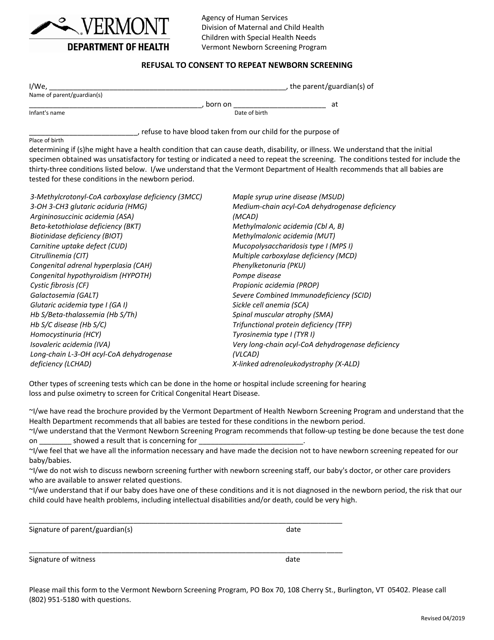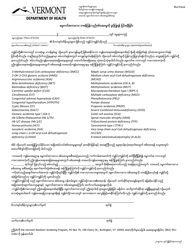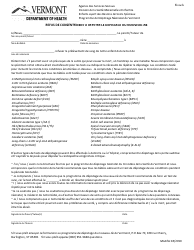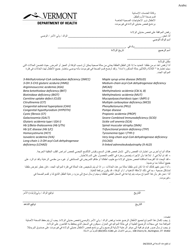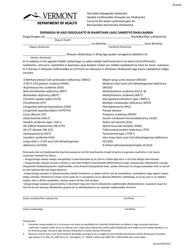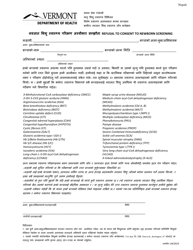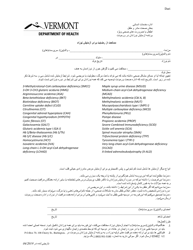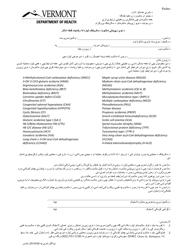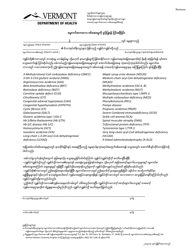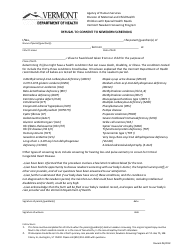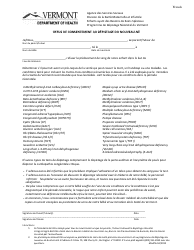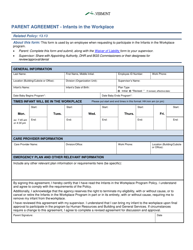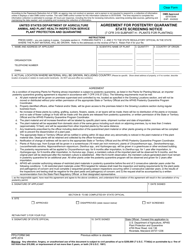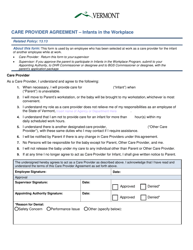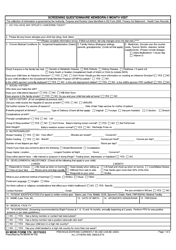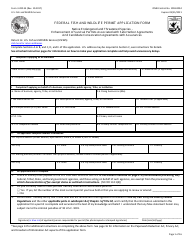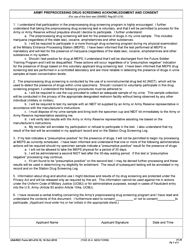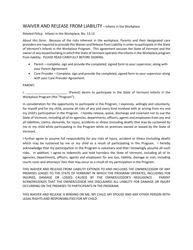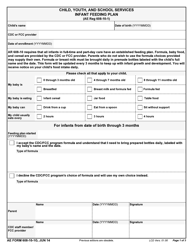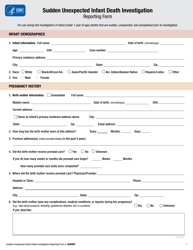Refusal to Consent to Repeat Newborn Screening - Vermont
Refusal to Consent to Repeat Newborn Screening is a legal document that was released by the Vermont Department of Health - a government authority operating within Vermont.
FAQ
Q: What is newborn screening?
A: Newborn screening is a series of tests performed on newborn babies to identify certain genetic, metabolic, and developmental disorders.
Q: Why would someone refuse to consent to repeat newborn screening?
A: There can be various reasons why someone might refuse to consent to repeat newborn screening, such as personal beliefs, cultural or religious reasons, or concerns about the testing procedure.
Q: What happens if someone refuses to consent to repeat newborn screening in Vermont?
A: If someone refuses to consent to repeat newborn screening in Vermont, it means that their child will not undergo additional screening tests beyond the initial screening done shortly after birth.
Q: Is newborn screening mandatory in Vermont?
A: Yes, newborn screening is mandated by law in Vermont to ensure early detection and treatment of certain genetic and metabolic disorders that can have serious health consequences if not identified early.
Q: Are there any exceptions to newborn screening in Vermont?
A: While newborn screening is mandatory in Vermont, there are certain limited exemptions available for religious or personal reasons. However, repeat screening may still be recommended in certain cases for the well-being of the child.
Form Details:
- Released on April 1, 2019;
- The latest edition currently provided by the Vermont Department of Health;
- Ready to use and print;
- Easy to customize;
- Compatible with most PDF-viewing applications;
- Fill out the form in our online filing application.
Download a printable version of the form by clicking the link below or browse more documents and templates provided by the Vermont Department of Health.
